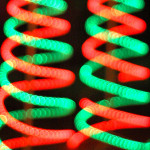
Rheumatoid arthritis – predicting response to treatment possible by looking at genes
 A new way of predicting disease outcomes in people with rheumatoid arthritis has been identified, experts report in the Journal of the American Medical Association.
A new way of predicting disease outcomes in people with rheumatoid arthritis has been identified, experts report in the Journal of the American Medical Association.
By analysing data from nearly 4,000 people, the research team found that certain genetic variants seem to be associated with higher or lower risks of increased disease severity. In the future these findings could mean that people at risk of severe disease are identified early. And it will be possible to predict who will respond best to treatment.
It was found that the amino acid valine at position 11 of the HLA-DRB1 gene was the strongest independent genetic determinant of radiological damage in rheumatoid arthritis. And positions 71 and 74 represented independent predictors, with the three positions together (11, 71 and 74) strongly associated with disease outcomes.
Another finding was that HLA-DRB1 haplotypes are associated with rheumatoid arthritis susceptibility and severe outcomes are predictors of good treatment response with anti-TNF therapy, an important class of biological drugs.
“To treat patients with rheumatoid arthritis more effectively and to prevent them being given drugs which won’t work for them, it’s important to know who is most likely to respond best to which drug, when and at what dose,” comments Dr Stephen Simpson from Arthritis Research UK. “This new research takes us a step closer to that goal.”
Click here to read the original research.
Subscribe to Arthritis Digest, the UK’s fastest growing arthritis magazine for all the latest arthritis news, reviews and celebrity interviews. You’ll know what your doctor is talking about, what new drugs are in the pipeline and be up to date on helpful products. Hard copy and digital versions both available. Click here for more information.
Image credit: Kevin Dooley
